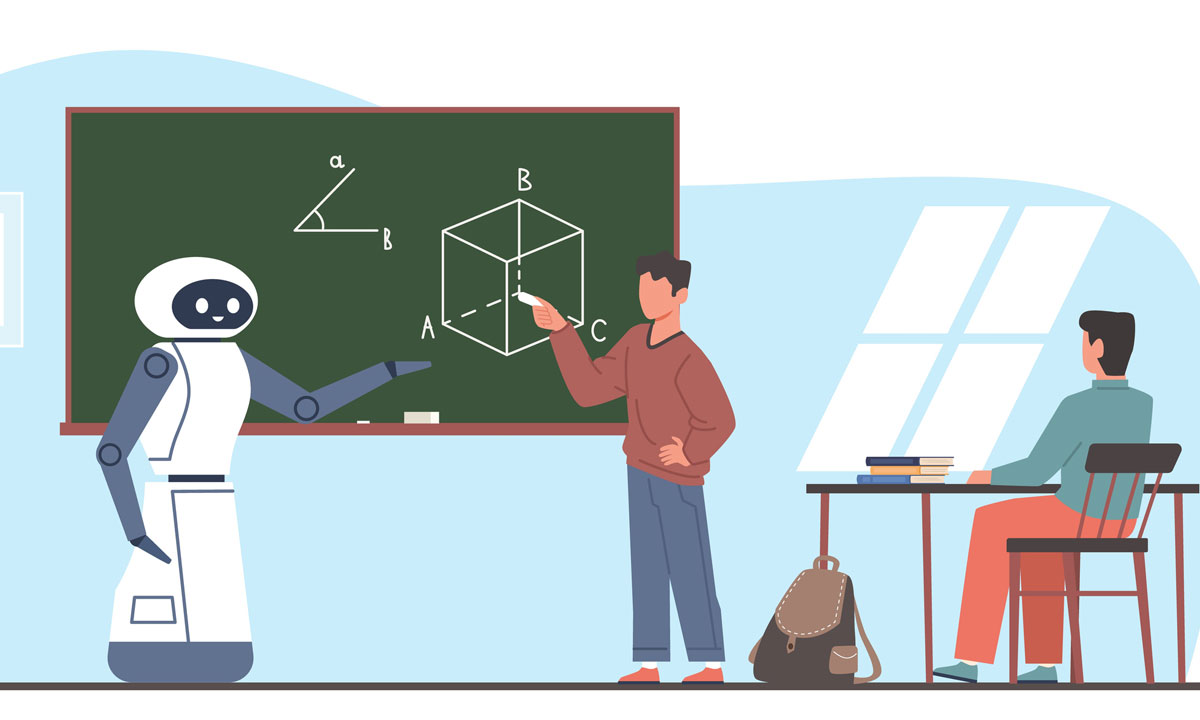How Do Teachers Feel About Their Jobs & the Impact of AI? New Survey Has Answers
Alexander: Educators are shifting out of survival mode to regain confidence in their profession, optimistic about artificial intelligence's potential.

Get stories like these delivered straight to your inbox. Sign up for The 74 Newsletter
Each year, the ed tech company I work for, HMH, conducts a survey designed to understand the obstacles and opportunities teachers and administrators experience. This year’s Educator Confidence Report revealed new insights into how more than 1,200 K-12 teachers are feeling about the profession overall, as well as their attitudes toward generative artificial intelligence — which is not only a buzzword, but has rapidly become a practical and inescapable classroom technology.
Sentiment around the profession reached an all-time low in 2022, but this year’s survey shows that confidence about education is inching up, increasing from 40 (out of 100) in 2022 to 42 in 2023. While the current index score correlates to around a “C” grade, this rise could represent a stabilization following a particularly challenging period for educators across the country. It’s encouraging to see that teachers are beginning to transition out of survival mode and toward regaining confidence in their profession. I believe that last year marked the low point and that we are now turning the corner and will see teachers feeling more enthusiastic about staying in the industry or, in the case of new educators, joining the field.
In addition to this positive trend, teachers surveyed for this year’s report also identified a few key areas that they feel optimistic about and feel are making a positive impact on the state of education. These include the use of digital platforms to improve student engagement, which 31% of educators surveyed felt optimistic about, as well as increased attention to students’ social and emotional needs, which 50% of educators reported as a point of optimism.
Based on the annual survey, as well as our work with thousands of teachers and firsthand experience in schools, it is clear that teaching is an increasingly complex job, and these professionals are especially concerned about the well-being of their students, their colleagues and themselves.
One bright spot in the research is the confidence and competence educators feel about their own knowledge of technology. Recent experiences with interrupted schooling and increased reliance on digital tools have created a teaching force that is capitalizing on the promise of technology. This technical know-how can be crucial in setting them, and their students, up for success.
A new piece of the technology puzzle is generative AI, which has come to the forefront of K-12 conversation in the past year. Our survey finds that educators are looking for guidance on using AI and recognize its transformative possibilities. More than half of the educators surveyed (57%) agreed that generative AI is inevitable and should be harnessed positively in the classroom, and 58% said they would be interested in professional development and coaching around this new technology.
AI represents the potential for a new era in education, one in which teachers are becoming learners again and driving change in their districts and schools. The majority of educators surveyed (90%) are not yet actively integrating AI in their classrooms. However, early adopters of AI (10%) are eager for more. For those who did use it in the 2022-23 school year, 74% said they expect to increase that this current school year.
The survey made clear that educators’ feelings about the new technology are mixed. But there is consensus about a few key activities where teachers feel that AI-generated content could accelerate achievement. More than half — 51% — said artificial intelligence could support worksheet creation, 48% identified assistance with lesson plans and 41% pointed to aid in coming up with prompts for writing assignments. Some 65% of teachers surveyed said that having more time for themselves would have an impact on their well-being, and AI is positioned to help with that. Creating writing prompts, lesson plans and worksheets takes time. By simplifying these tasks, AI can give teachers more time to focus on their own needs and foster relationships with students.
Educators are just starting to unpack the benefits of generative AI. With the proper supports, this new technology will allow them to do the things they do best – fostering deep learning, building relationships, counseling students, building communities of learners — and, in turn, improve the state of the profession.
Get stories like these delivered straight to your inbox. Sign up for The 74 Newsletter

